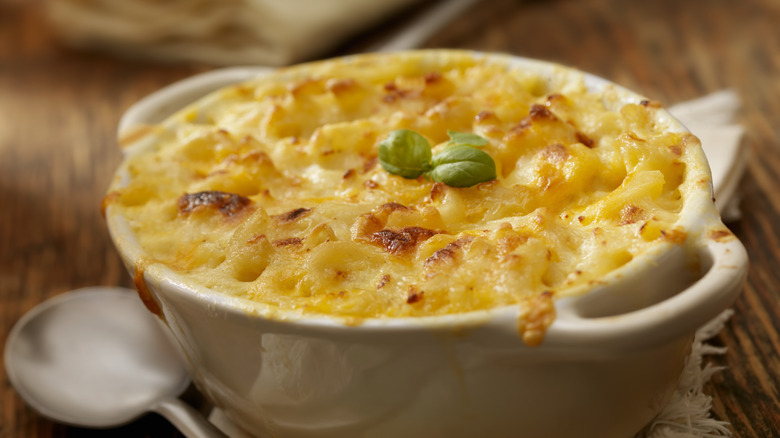The Two Classic Holiday Dishes You Didn't Know Had African American Roots - Exclusive
Around the holidays, we tend to eat the same traditional dishes, but many of us don't stop to think about how they became so ingrained in our culture. Thanksgiving food is often explained with vague references to pilgrims, but the dishes we eat today aren't all that similar to those that were served on the first Thanksgiving. Modern Christmas food, too, is not much like the fare eaten by Romans in the 4th century A.D., when the holiday was first popularized. When searching for the roots of American holiday dishes, it's often more helpful to look closer to home and to relatively more recent times.
Tasting Table sat for an exclusive interview with Stephen Satterfield and Jessica B. Harris, the hosts of Netflix's "High on the Hog." The docuseries, which is based on Harris' book of the same name, traces the history of African-American food from its origins in Africa to the present day. Harris pointed out two popular holiday dishes that likely emerged from African-American food traditions. She said, "Sweet potato pie possibly — and I'm saying possibly, I'm not saying definitively — might have been an African-American swap-out for pumpkin pie that was prevalent in the South."
The other dish with a historic connection to Black cooks is mac and cheese, an early recipe for which was prepared by James Hemings, an enslaved man who cooked for Thomas Jefferson.
James Hemings and mac and cheese
Thomas Jefferson owned James Hemings and sent him to France to be trained as a chef. When Hemings returned, he worked for the future president in Philadelphia and in his home at Monticello, preparing gourmet European-style meals.
It was during his time in France that Hemings likely learned how to make mac and cheese, and there is evidence that he prepared the dish for Jefferson in the early 1800s. He apparently boiled the macaroni in a blend of milk and water to make the dish extra creamy. Although Jefferson eventually granted Hemings his freedom, he did not extend the same offer to many of Hemings' family members who were also enslaved at Monticello. Despite his enormous contributions to American food culture, Hemings died unhonored and unrecognized.
For Jessica B. Harris, eating mac and cheese during the holidays can be viewed as a way to honor Hemings' memory; as she put it, "The connection with James Hemings is certainly something we might want to think about this Thanksgiving."
"High on the Hog" Season 2 is available to stream on Netflix.

